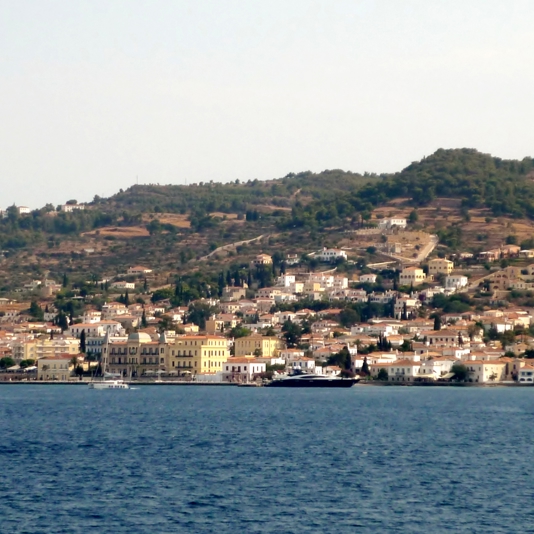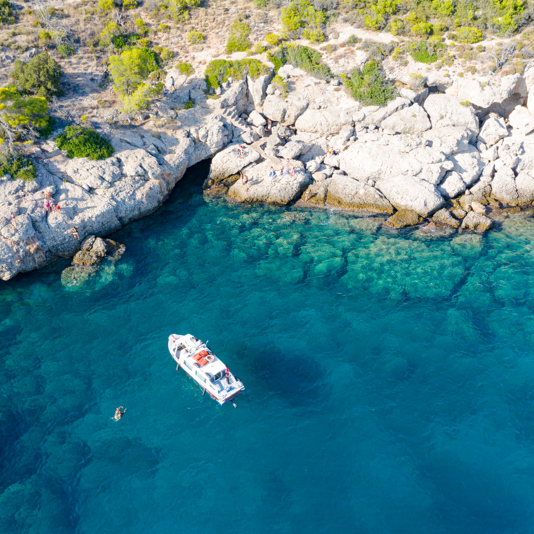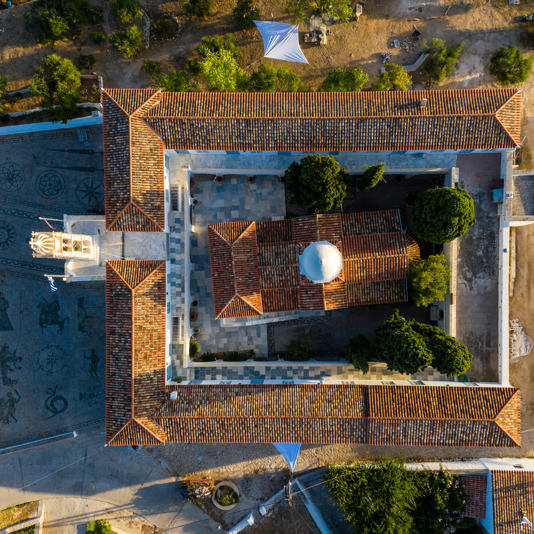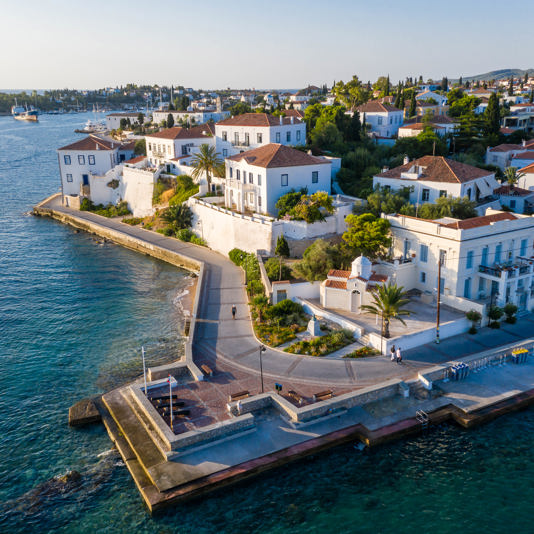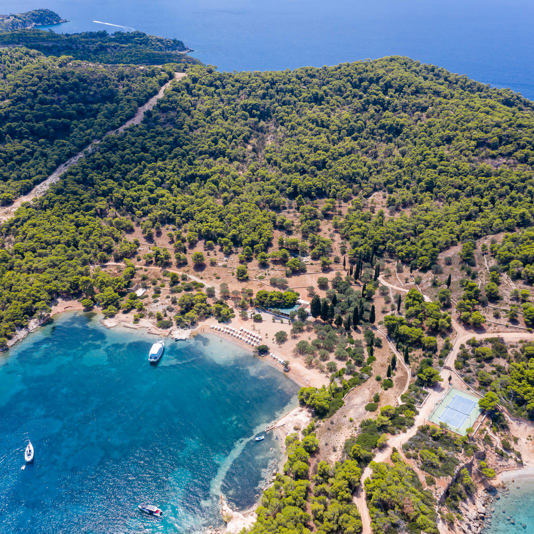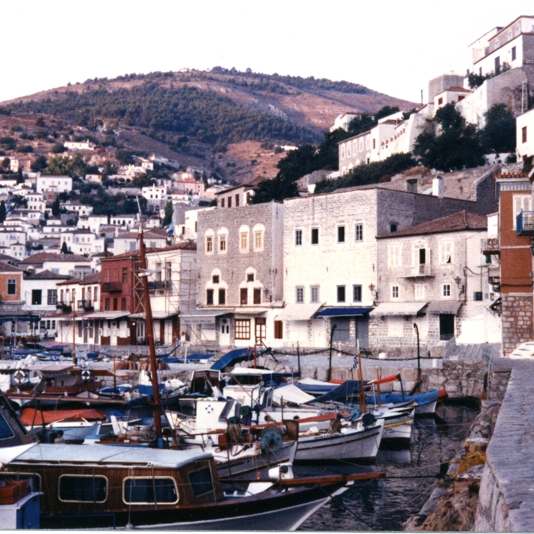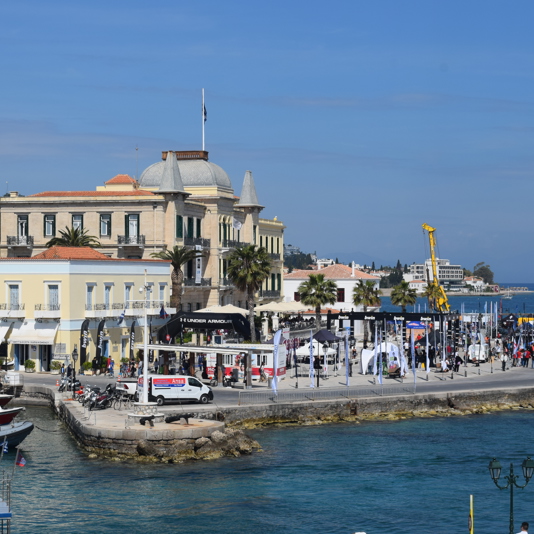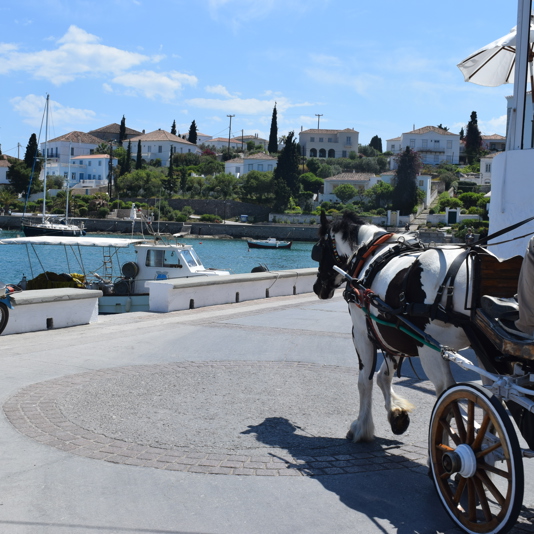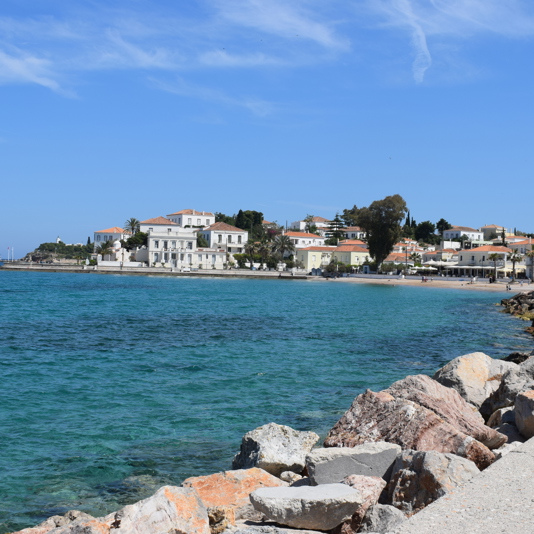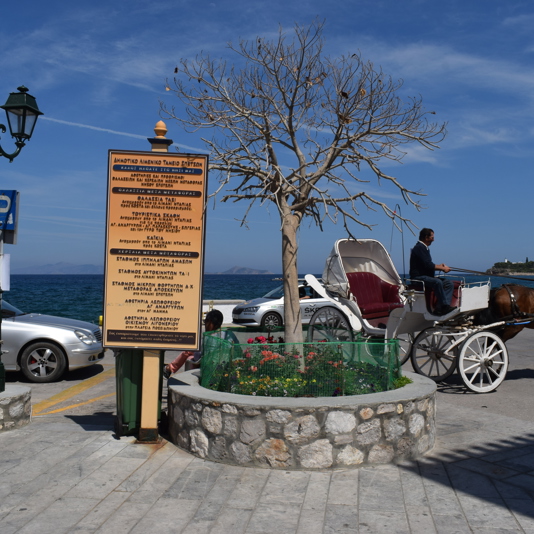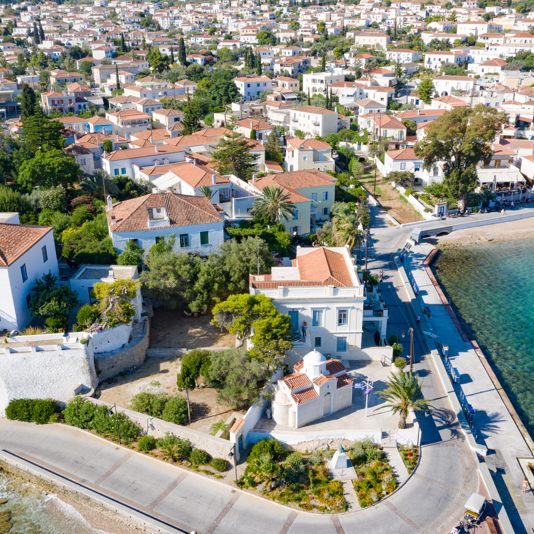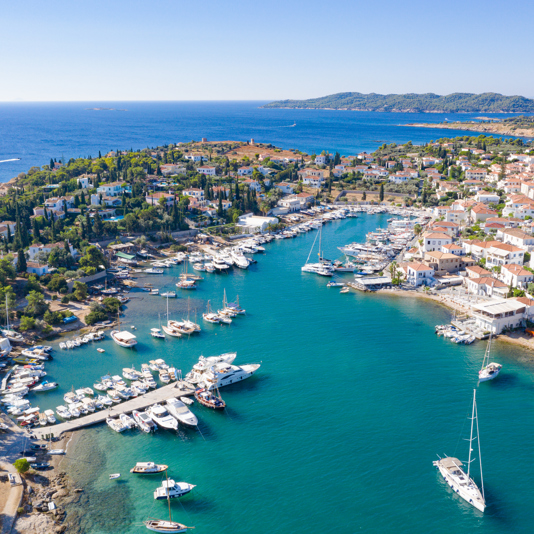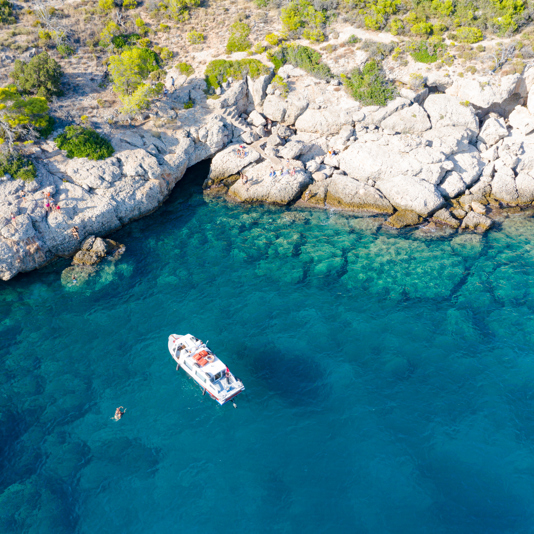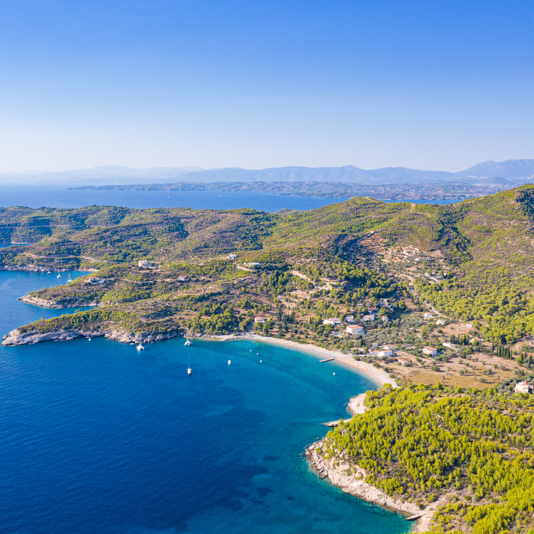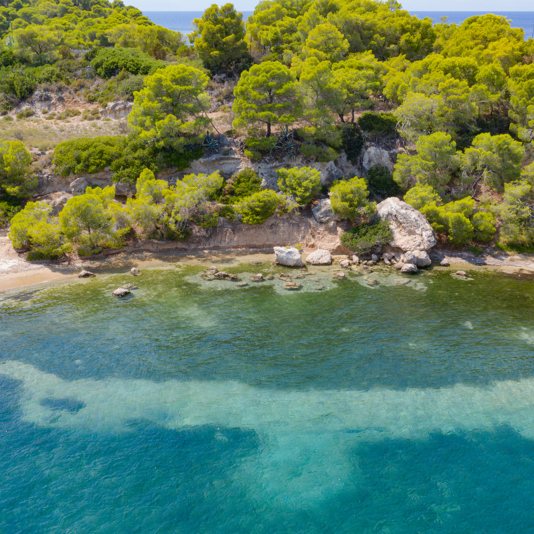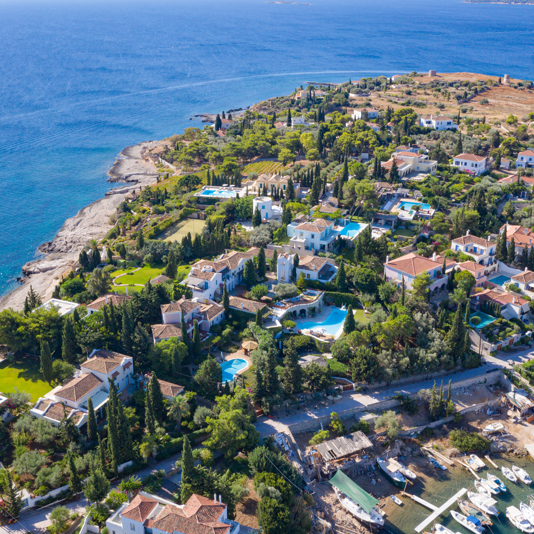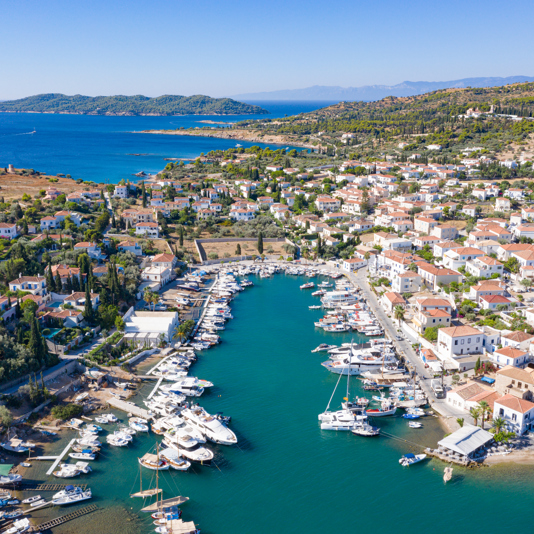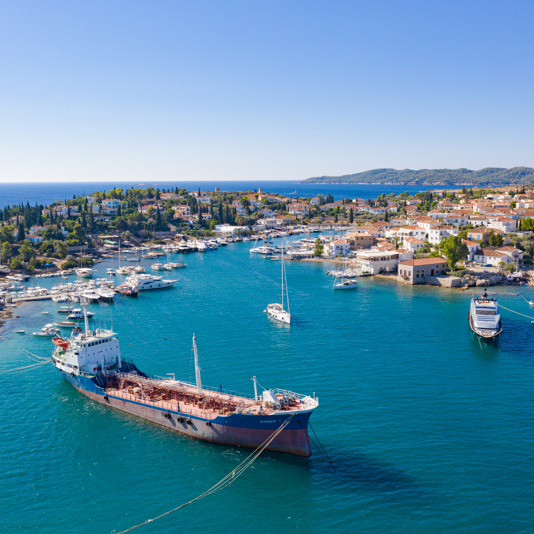Spetses is where superyachts pop up and out next to traditional wooden fishing boats and where the super-rich rub shoulders with the locals in quayside tavernas. All are drawn to this pine-covered island for its clear waters, coves and Spetses Town, untainted by package tourism.
Enjoy the aromas of spices exuding from pebbled courtyards of the town of Dapia. Spetses got its name from Italian spezie "spices" due to rosemary and thyme growing here. Overlook Saronic Gulf from the charming “balcony”. Town Clock, the trademark of Spetses, Venetian mansions of rich shipowners and merchants emit a vintage aura. Take a look at the private Anargyrios & Korgialenios School. This school and the island itself were prototypes for John Fowles novel The Magus. Take a walk to the Old Harbor. The coastal road will lead you past spectacular mansions, luxury yachts and cruisers, to the church of the Panaghia Armata and the Lighthouse - one of the first to be built in Greece and still in use. Watch traditional shipbuilding in the Shipyards. Spetses inhabitants built vrikogoleta here – a ship model that gave freedom to the island. Visit the Monastery of Agios Nikolaos – the oldest religious and historical site of Spetses with pebbled courtyard and bell tower made of Tinian marble. Sail in September to catch Armata Festival culminating with reconstruction of the battle with Turks and fireworks.
Choose your mode of transport around Dapia - walking, horse-drawn carriage, bicycle, moped, motorcycle or sea taxi. Private cars are banned within the town limits. Ask us to provide you bicycles onboard.
Try local fish a la spetsiota in one of the cafes, bars and restaurants around the Old Harbor.
Verify the legend of the cave of Bekiris: drink water from the source inside the cave with your other half to make your love last forever. Bekiris is the cave of filmmakers of the "50". Unwind on the beaches. Sandy Zogeria beach is surrounded with pines and considered one of the most beautiful on the island.
A nymph Pitys was transformed into a pine tree to escape Pan, the god of the wild, shepherds and flocks. The island’s ancient name was Pityoussa, because it was covered with pines, and it still is in the remote areas.
